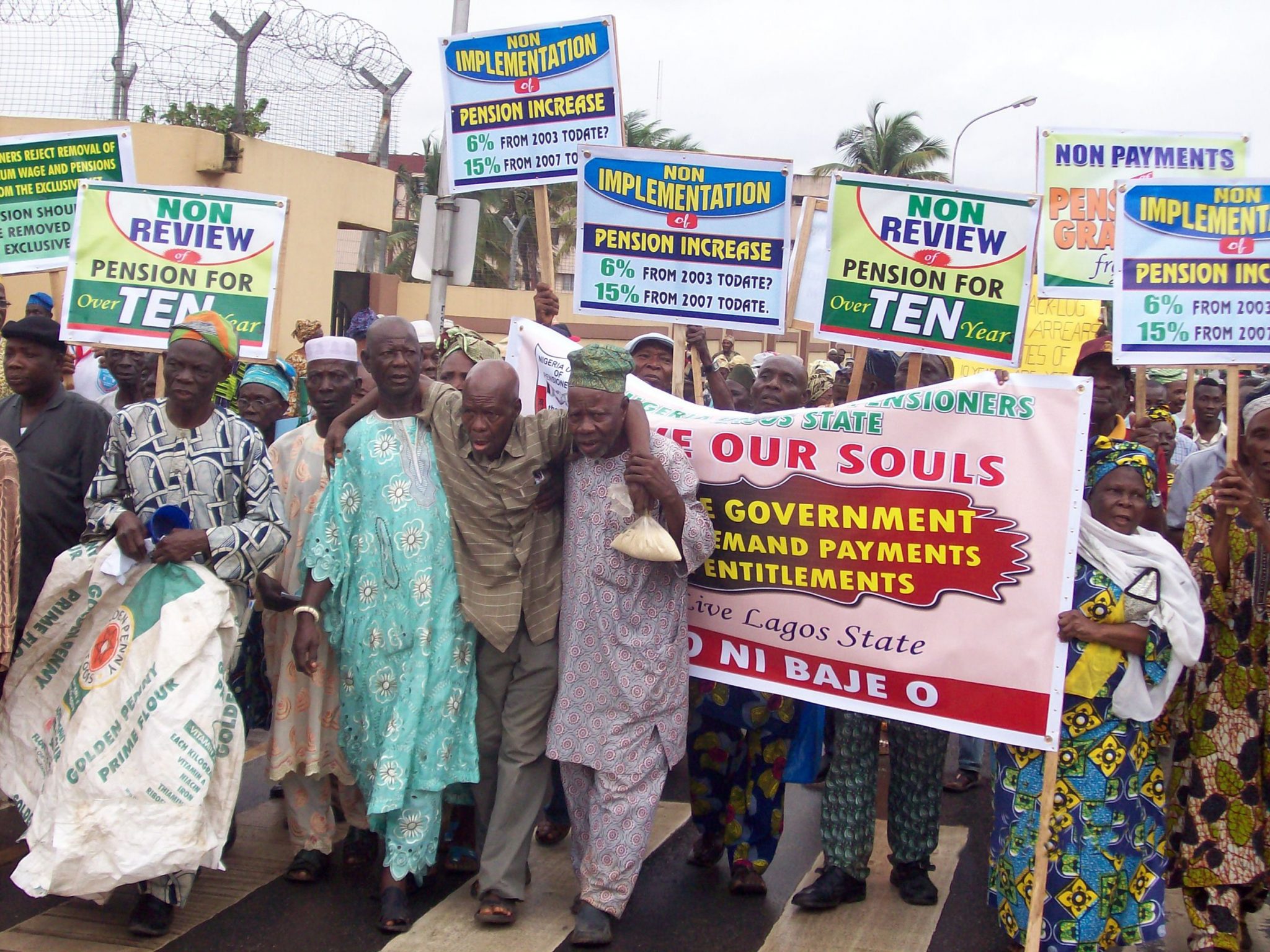Subsidy Removal: S’West Pensioners Demand N40,000 Minimum Pension
Pensioners in the South-West geo-political zone have demanded for N40,000 minimum pension from the governors in the zone.
The pensioners made the demand at the end of the meeting of the Nigeria Union of Pensioners (NUP), South-West zone, held in Ibadan on Thursday.
The News Agency of Nigeria (NAN) reports that the meeting was attended by union executives from Oyo, Osun, Ekiti, Ondo, Lagos and Ogun states.
Addressing newsmen at the end of the meeting, the NUP Public Relations Officer for the zone, Mr Olusegun Abatan, said that the plight of pensioners in the South-West in particular and Nigeria in general had remained static for years.
According to Abatan, some pensioners in the zone earn as low as N350 monthly pension, while the governors seem not to see anything wrong with it.
He said that many states in the zone last paid their pensioners’ gratuities between 2012 and 2014, describing it as criminal and unacceptable.
“Governors’ salaries have continued to increase while some of them still factor in life pensions for themselves after spending four to eight years, without thinking about the lives of pensioners as well as their gratuities and pensions.
“The South-West zone of NUP has decided at our meeting that we will not take anything less than N40,000 minimum pension.
“It is disheartening to tell you that while workers have minimum wage, there is no minimum pension,” Abatan said.
He said that the removal of petrol subsidy had not only affected the citizens of Nigeria, but had more effect on pensioners.
The NUP public relations officer said that pensioners now found it more difficult to attend to their medical expenses and other needs as a result of low pension.
Abatan said that the NUP in the zone would soon come out with its own scale of pension review that would be presented to all the states in the zone, adding that this might also be passed to other zones across the country.
“We know we don’t have the power to go on strike but we have other means to drive and achieve our demands,” he said.
Abatan called on Nigerians to stand up for their rights against both the state and federal governments.





